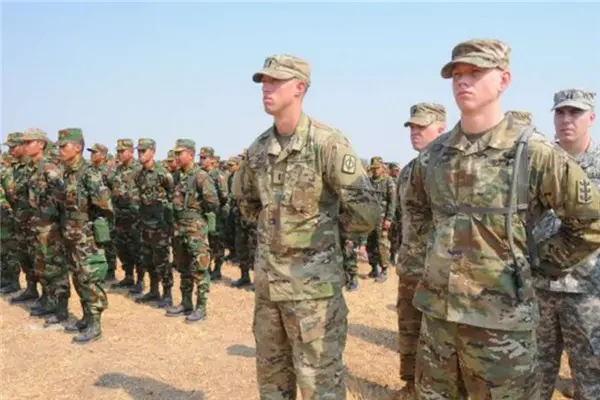Cambodia has cancelled upcoming military exercises with the United States, the defence ministry said Tuesday, denying the decision was made to appease regional ally China, with which it conducted joint drills last month.
American and Cambodian troops had been due to take part in the annual “Angkor Sentinel” joint exercise this summer, which has been held for the past seven years.
But defence officials in Phnom Penh said the exercise had been halted because Cambodian troops were needed to carry out an ongoing drug crimes purge and prepare for upcoming local elections due to be held in June.
“We need forces to maintain security during the local elections in 2017. That’s why we are suspending the exercise,” Defence Ministry spokesman Chhum Socheat said.
“It is not about Chinese influence. We have cooperation with both China and US as well as other countries.”
Outgoing US President Barack Obama spent much of his eight years in office trying to forge closer alliances in Asia, part of his much-vaunted, but often distracted, pivot to the region.
It is unclear whether his successor Donald Trump will continue the policy. While his policies for Southeast Asia remain unclear, Trump has vowed in various tweets and speeches to take a more muscular approach towards China on trade and regional security.
Cambodian Prime Minister Hun Sen said last November he supported Trump becoming the next US president, reasoning that a Trump presidency would lead to a better world.
A Buddhist monk blesses one of 12 China-made Z-9 helicopters purchased from China in 2013. Photo: Xinhua
Cambodia is also one of Southeast Asia’s staunchest China allies, with Beijing rewarding the government of Hun Sen with lucrative business and defence deals.
Last month Cambodia hosted the “Golden Dragon” joint exercise with Chinese troops.
In October, China’s president Xi Jinping visited Cambodia and promised hundreds of millions of dollars in aid, including military equipment.
In recent years Cambodia has become a thorn in the side for neighbouring nations hoping to present a unified front against China’s island-building in contested waters.
The United States has also sparred with Beijing over the issue.
“China is going to test the United States,” said Thitinan Pongsudhirak, a professor of political science at Bangkok’s Chulalongkorn University.
“This is one of the early test signals. Cambodia is a bit part in the overall picture.”
US Embassy spokesman Jay Raman confirmed that the exercises for 2017 and 2018 have been cancelled. He said military exchanges and training programmes are not affected.
After the local elections in June, Cambodia will hold a general election in 2018 in which Hun Sen is expected to face a strong challenge.
“We have never had any problem with the US,” said Chhum Socheath, explaining that in principle Cambodian forces try to make friends with all countries including the US, China, Russia and Vietnam, to which they have also sent their officers for training.
Washington has a complicated relationship with Cambodia, whose human rights record is strongly criticised by groups such as Amnesty International. US-based Human Rights Watch criticised the 2014 Angkor Sentinel exercise for providing “training that would assist Cambodia’s military in government crackdowns on the political opposition and civil society activists.”
However, US policy toward Hun Sen’s government has generally been conciliatory.
Last year’s exercise was the seventh in the series, which tries to emphasise humanitarian and peacekeeping operations.
“Joint military exercises benefit both of our nations by enhancing our ability to work together to combat maritime piracy, protect trade and shipping routes, deter terrorists, and provide humanitarian assistance during natural disasters,” US Embassy spokesman Raman said.
“The United States will look for additional ways that we can cooperate in these areas.”
(AFP)
 简体中文
简体中文

